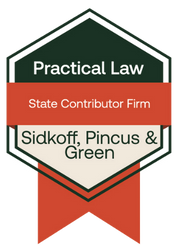Protections for Transgendered Employees

Recently, a federal court judge ruled that a transgendered woman could proceed with a lawsuit for employment discrimination under the Americans With Disabilities Act (ADA). As the law currently stands, transgendered individuals are excluded from protection under the ADA. However, the rights and protections afforded to the transgender community are rapidly expanding at the federal, state, and local levels. This recent decision confirms that, as the District Court judge allowed the case to proceed under a new theory, that gender dysphoria can limit an individual’s major life activities, such as reproduction and social interaction.
The plaintiff, Kate Lynn Blatt, is the first transgendered individual to file a lawsuit under the ADA. She has alleged that her former employer, Cabela’s, a retailer of outdoor equipment located in Hamburg, Pennsylvania, forbid her from using the women’s bathroom and required her to wear a name tag displaying her male birth name. Blatt also alleges her co-workers referred to her as “he/she,” “freak,” “ladyboy,” and asked her questions about her genitals. Eventually, her employment terminated when her employer alleged that she threatened a co-worker’s child at work. Blatt denies this occurred. She subsequently sued Cabela’s alleging that she was mistreated and fired based on her gender-identity-related disability, or gender dysphoria.
Gender dysphoria is a condition where the person feels like their psychological identity differs from their biological gender. The American Psychiatric Association (APA) does not classify transgender as a disorder, however, gender dysphoria is a type of anxiety that may require psychological medication and treatment.
Cabela’s filed a motion to dismiss on grounds that the ADA expresses excludes gender identity disorder as a disability. The court denied Cabela’s motion, leaning on Blatt’s citation to the legislative history of the act as intended to protect historically and politically marginalized individuals based on an immutable characteristic.
The District Court judge sidestepped the issue as to whether the ADA was constitutional, based on the doctrine of constitutional avoidance. He determined that the case could proceed on grounds that the law should be broadly construed to give individuals with disabilities recourse to pursue claims against their employers for discrimination.
Philadelphia Employment Lawyers at Sidkoff, Pincus & Green P.C. Represent Victims of Discrimination
The laws surrounding LGBTQ rights and protections is rapidly evolving. Philadelphia employment lawyers at Sidkoff, Pincus & Green P.C. stay up to date on the most recent developments for LGBTQ rights in the employment litigation context. If you suspect that you have been discriminated against based on your sexual identity or other characteristic, call us today at 215-574-0600 or contact us online. We can help you determine whether you have a viable claim and advise you on how you should proceed.



















